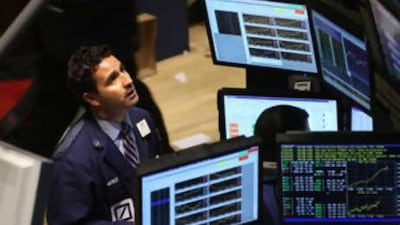The chairman of the Federal Reserve, Ben Bernanke, yesterday endorsed the idea of a second US economic stimulus plan this year, after warning of a possible "protracted slowdown". "With the economy likely to be weak for several quarters and with some risk of a protracted slowdown, consideration of a fiscal package by the Congress at this juncture seems appropriate," he said in comments to the House of Representatives budget committee.
US stocks rallied today after Mr Bernanke's comments. The speaker of the House, the democrat Nancy Pelosi, has suggested that Congress may convene after the Nov 4 presidential election to pass a projected US$150 billion spending package. The plan would increase federal spending on infrastructure, food stamps and unemployment insurance, and a focus on health care aid in the form of programs like Medicaid.
Ms Pelosi welcomed Mr Bernanke's comments and called on George W Bush and Republicans in the upper chamber Senate "to enact a targeted, timely, and fiscally responsible economic recovery and job creation package". Mr Bush signed into law a $168bn stimulus package in February, but Senate Republicans rejected an attempt by the House to pass a second package last month. The White House said it was keeping an "open mind" regarding a second package but was wary of proposals from the Democrats.
"I think we just need to wait and see. We're open to ideas and we'll take a look at what comes our way," the spokeswoman Dana Perino said aboard the presidential aeroplane, Air Force One. Mr Bernanke said in testimony about the US economy that consumption was falling, confidence was low and the housing market still depressed. "The slowing in spending and activity spans most major sectors," he said.
Asked about a recession, he declined to use the word but said "the pace of economic activity is likely to be below that of its longer-term potential for several quarters". Some analysts said this was a coded admission that the economy would contract for two consecutive quarters ? the most widely used definition of a recession among economists. "We are in a very serious slowdown in the economy which has very serious consequences for the public," Mr Bernanke replied when pushed to say whether a recession was underway.
"Whether it's called a recession or not is of no consequence," he said. He gave no firm hint of further interest rate cuts to help the economy, but said inflationary pressures were falling due to declining prices of commodities and imports. "If not reversed, these developments, together with the likelihood that economic activity will fall short of potential for a time, should bring inflation down to levels consistent with price stability," he said.
The Fed has spent weeks in crisis-management mode, using a series of weapons to combat the most severe financial crisis since the Great Depression of the 1930s. Mr Bernanke said any new plan should take into account the long-term effect on government accounts. Meanwhile, stock markets sprinted higher, with strong gains in Asia, Europe and on Wall Street as investors cheered government pledges to tackle the economic crisis.
*AFP

